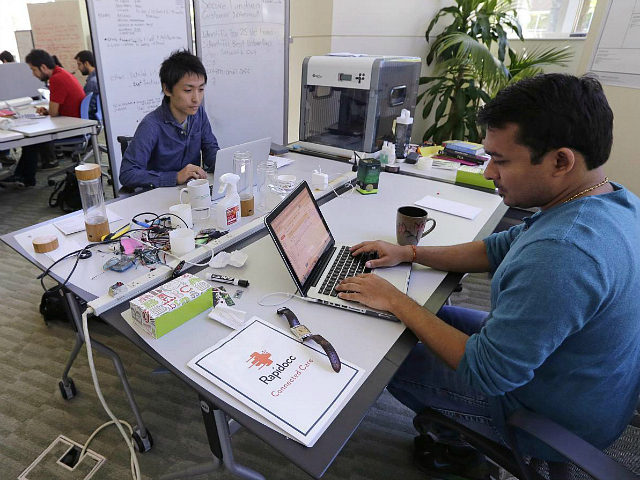President Donald Trump is expected to shrink a huge work permit program that quietly allows companies to hire foreign employees for the jobs needed by U.S. graduates in the coronavirus crash, according to the Wall Street Journal.
“The coming temporary restrictions, the officials say, are designed to help American graduates looking for entry-level work during the pandemic-fueled economic downturn,” said the March 23 article.
They are expected to come in a package of new immigration restrictions President Trump has said he would issue in an executive order, likely in the next few weeks, though they are still subject to White House review.
…Mr. Trump’s immigration advisers haven’t settled on precisely how to curtail the program, with proposals ranging from a yearlong suspension with limited exceptions, such as for graduates looking to work in the medical field, or a narrower ban targeting certain industries.
The policy shift comes as grassroots pressure groups — including a new coalition of GOP student groups — press Trump to follow through on his Inauguration Day “Hire American” promise.
Trump’s failure to push back against the visa worker programs has disappointed many of the college graduates and professionals who voted for Trump in 2016 — especially because so many are losing jobs in the coronavirus crash.
The visa worker programs are being defended by lobbyists representing many business groups, as well as the colleges and universities that provide vital OPT documentation to the foreigners who pay tuition.
The OPT program keeps roughly 500,000 foreign workers in the U.S. labor market each year. The number includes at least 119,000 technology workers, including 70,000 Indian and 26,000 Chinese.
Still, the resident population of legal OPT employees is smaller than the H-1B program, which keeps roughly 750,000 foreign employees in a wide variety of white-collar jobs throughout the United States. The WSJ article does not mention draft changes to the H-1B program.
Both programs reduce labor costs for a wide variety of Fortune 500 companies, so boosting their stock prices on Wall St.
New data show the economic benefits of the OPT program overwhelmingly flow to wealthy coastal states dominated by Democrat politicians.
For example, the OPT program and its sister program — the Curricular Practical Training program — provides companies in coastal states with hundreds of thousands of tax-subsidized trained employees. The offer of cheap and mobile labor minimizes the incentives for investors and executives in California, New York, and New Jersey to set up satellite offices in heartland states such as Wisconsin, Ohio, Pennsylvania, and Missouri.
Advocates for the program say that it helps keep creative foreign graduates in the United States. But the advocates have not publicly suggested a compromise plan that would allow research centers to recruit the smartest foreign graduates while preventing companies from using the program as a source of cheap labor.
The program also provides many opportunities for fraud. For example, agency officials have shut down several companies that sold false claims of job offers that allow foreign graduates to stay in the United States, likely so they can work at other tasks.
Follow Neil Munro on Twitter @NeilMunroDC, or email the author at NMunro@Breitbart.com.

COMMENTS
Please let us know if you're having issues with commenting.